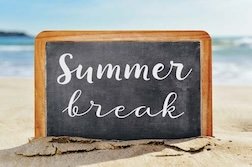Healing Intentions
Foreword: I am delighted to welcome Gabby back to our blog as a guest writer. Gabby is a longtime subscriber to Dissociative Writers, a Board member, an editor for our Anthology, and a frequent presenter at the annual Healing Together Conference sponsored by An Infinite Mind. She has guest posted on Shame, Myth, & Me, From Now On, and Deny, Ignore, Accept. In this insightful post, she reflects on healing intentions and how they help us on our life journeys. ~ Lyn
by Guest Blogger, Gabriell Sacks
A friend recently asked me, “What is your “intention” for healing?” The theory goes, she told me, that setting an intention starts your whole body/mind/spirit moving toward that positive practice, organically, almost imperceptibly.
The question got me thinking.
How is an “intention’” different from a “goal”? I looked it up and came up with: A goal is “a predetermined result, arbitrarily chosen to achieve a temporary feeling in a moment in time.” An intention is “a desire to create a sustained feeling over time through the development of habits regardless of the ultimate outcome.” So, a goal has an endpoint, a desired outcome, whereas an intention aims to develop habits over time.
Before I even tackled my intention for healing, though, I needed to understand what “healing” itself meant for me.
“I don’t think I will ever be completely healed,” I told my friend. I will never be “free from injury” or “restored to health.” After a childhood of horror and abuse, there will always be at least a tiny shard of brokenness inside me and scars that indicate past wounds. I view healing as more of a life-long journey than a determinate endpoint. Maybe this is where intention vs. goal comes in. I have many intentions as I continue to heal, but I don’t think I’ll ever be able to say: “I’m done! I’m completely healed! No more work to do!” Healing, itself, is not a goal for me, but there are many healing “habits” I wish to incorporate into my life.
Integration
First and foremost, my ultimate healing intention is to function in the world as an integrated person. That means that my whole being knows, accepts, and feels my entire life narrative without needing to resort to dissociation or self-injury to cope. Both of those coping skills have enabled me to survive to the age of 56, but I really don’t need them anymore. From here on out I hope to live a life without dissociative barriers/amnesia and without cutting or burning my body. As I continue to develop a tool-box of more functional coping skills, this intention will eventually be assimilated into my life.
Connections
Another intention I have for healing is to develop deeper and more meaningful connections with people. I want to stop fawning, stop trying so hard to constantly anticipate others’ needs, stop being on high-alert. This will require that I learn to set better boundaries and tend to my own needs/wants. I will need to be more honest with people.
Solitude
I’m an introvert and a person who enjoys solitude. I’ve had a hard time convincing myself that there is nothing wrong with this, that it is just another way of being. It’s just who I am, and that is ok. Another healing intention, then, is to honor my need for solitude and to secure enough alone time to pursue activities that are meaningful to me like art, music, and writing. Time alone will also enable me to touch base with myself and my internal world, which I need to do regularly to stay functional.
Role-model
As I start to share my “story” with more people, another healing intention, through public speaking or maybe writing a memoir or showing my psycho-structures, is to be a role model for other survivors. I want to show people that it is possible to overcome severe childhood abuse and learn to live a life of purpose and meaning with joy and even hope.
Independence
Lastly, as I continue on this healing journey, I hope to need less support from and be less dependent on my therapist. I’m truly grateful for everything she has done and continues to do for me as we travel this road together. Yet, my continued dependence on her scares me and also is not sustainable over the long run. Healing means less dependence and more independence. Perhaps that will be a natural part of the progression.
I’m grateful my friend asked me this question. Setting healing intentions can be an important step along the journey. Wounds, which we will carry forever, turn to wisdom as intentions are set and the journey continues.
Summer Break
Although Lyn has taken a summer break from writing this blog, the writers in Dissociative Writers are continuing to meet regularly in Draft & Discuss, Writing-in-Place, and Focused Writing workshops. We are accepting submissions to our 2025 anthology from DW subscribers until mid-September. We are reviewing several proposals for special events this coming year. And we’re creating community on Heartbeat, not only through our writing workshops, but also our Art Gallery and Pet Pal channels. To subscribe to Dissociative Writers, please go to our website by clicking here.
🕊️
Healing takes courage, and we all have courage, even if we have to dig a little to find it.
~ Tori Amos


